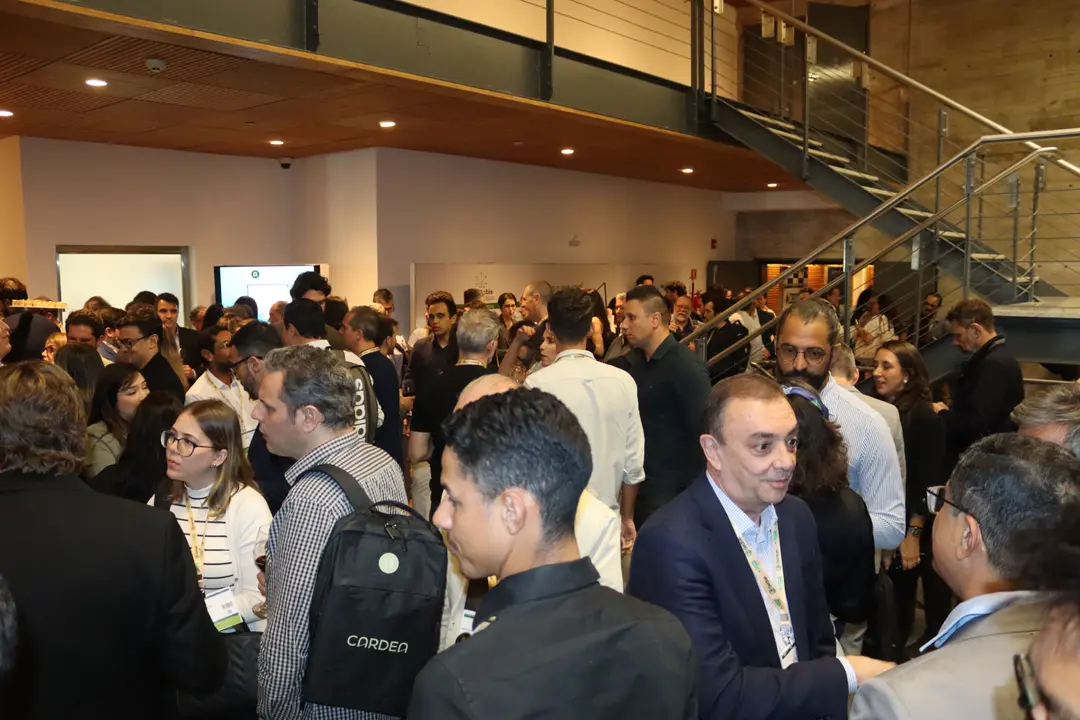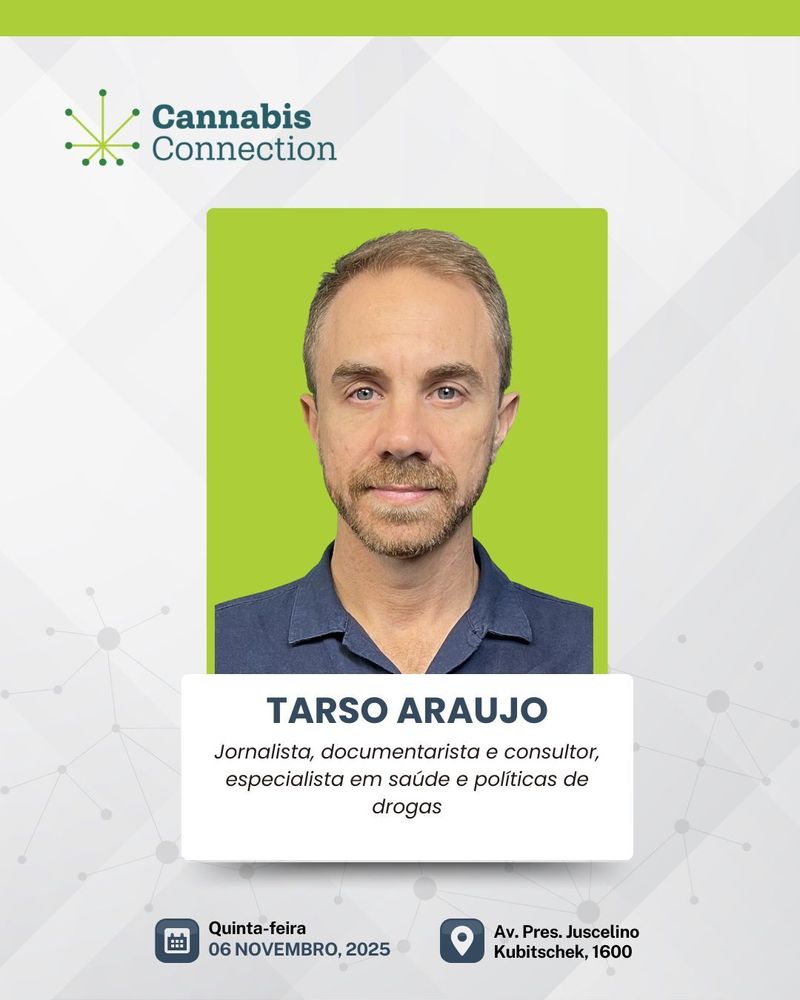With extension requested from STJ, Cannabis Connection 2025 gains even more relevance in the debate about the future of cannabis in Brazil
“Now is the time to devise strategies and discuss how to implement and improve the requirements that will come,” says Beatriz Marti Emygdio, researcher at Embrapa and president of the Permanent Committee on Cannabis (CPCAN)
Published on 10/08/2025

Leadership, innovation, and strategy meeting: Cannabis Connection 2025. Image: Sechat
The future of regulating the cultivation of cannabis for medicinal purposes in Brazil has entered a new waiting period. Last Tuesday (30), the deadline set by the Superior Court of Justice (STJ), the Federal Government requested from Minister Regina Helena Costa, the rapporteur of the case, an extension of 180 days to publish the regulation that will define the rules for the planting and commercialization of the plant in the country.
The justification presented by the Ministry of Health (MS) and Anvisa is the “high technical and regulatory complexity of the subject,” which would require an internal restructuring at the agency, in addition to the need to carry out a Regulatory Impact Analysis (AIR) and a public consultation to ensure social participation. The new proposed schedule extends the stages until March 2026.
With the original action plan expired, crucial steps — such as consolidating contributions, legal analysis of the draft, and final approval of the ordinance — remained pending. Now, the expectation is on the decision of Minister Regina Helena, who will evaluate the request and disclose her decision in the Electronic Justice Gazette (DJe).

In this scenario of expectation, the Cannabis Connection 2025 becomes even more strategic. The event, scheduled for November 6th, in São Paulo, will bring together leaders, experts, and representatives from the public and private sectors to discuss the future of cannabis in Brazil — precisely at a time when the country is reviewing its regulatory timeline.
Secure your spot

Among the confirmed names is Beatriz Marti Emygdio, researcher at Embrapa and president of the Permanent Committee for Strategic Advisory on Cannabis (CPCAN). Beatriz closely follows the development of the regulatory framework and emphasizes that the postponement increases the need for technical and interinstitutional dialogue:
“As soon as the regulation for cannabis cultivation in the country is released, there will be a series of strategic, technical, legal, and economic aspects that need to be analyzed and discussed to ensure that companies, associations, government, and researchers can efficiently adapt to this new scenario,” she explains.
She highlights that one of the main open points is who will be able to cultivate — whether only legal entities, such as companies and cooperatives, or if there will also be space for family producers and traditional communities.
“There is an expectation that the possibilities will be clearly defined. Whether we will have a general rule or if there will be peculiarities for each entity, considering associations and cooperatives, for example,” she observes.
Another essential axis, according to Beatriz, is the purposes of cultivation.
“We still do not know if the regulation will only cover cultivation for medicinal and pharmaceutical purposes or if it will also open space for scientific use, and even — although with lower expectations — for industrial use, with fibers and seeds aimed at cosmetics and other products,” she points out.
She explains that the THC limits and the traceability and inspection methods are also among the points that will define the degree of strictness of the new framework.
“The expectation is that the limit will be around 0.3% of THC as a ceiling, but there are groups advocating for greater flexibility. It will also be essential to define how monitoring, inventory control, and final destination of production will be carried out,” she states.
In the economic and commercial field, Beatriz emphasizes that the regulation will have a direct impact on prices and competitiveness:
“Depending on the level of detail and biosafety and good practice requirements, the cost of cultivation can vary greatly. The expectation is that, with national production, we can reduce prices and expand access to a larger number of people, since imported products today are very expensive.”
She also points out uncertainties about incentives and credit:
“There is an expectation that funding and credit lines will be created, including for startups and smaller companies. But there is still resistance from banks to operate with resources linked to cannabis, so a joint effort will be needed to open up this financial and agricultural market.”
In the scientific field, Beatriz points out that Brazil already has a solid foundation to advance, but lacks specific rules:
“We have more than 60 universities and science and technology institutes researching cannabis, hundreds of researchers, and dozens of projects funded by public bodies such as FINEP and CNPq. It is a robust scenario, but one that still operates with slow and unclear authorizations. We need rules that provide security for the scientific and technological development of cannabis in the country.”
She recalls that the action plan of the Ministry of Health and Anvisa foresees that the rules for scientific purposes will also be defined within this regulatory process.
“It is urgent that the country establishes a specific set of rules for research, as this directly impacts scientific progress and national innovation,” she emphasizes.
Beatriz also highlights the social and environmental aspects that need to be observed:
“There is a great expectation that the process will include small farmers and traditional communities, ensuring productive inclusion. At the same time, attention must be paid to sustainability — impacts on the soil, water use, waste disposal. All of this depends on the cultivation model that will be allowed,” she explains.
Finally, she points out that the Cannabis Connection 2025 takes place at a symbolic moment and will be a rare opportunity to align technical, political, and economic perspectives:
“I am sure that the Cannabis Connection will be an excellent opportunity, because we will have — or should have — the definition of these rules. It is a very rich moment to devise strategies and discuss how to implement and improve the requirements that will come. It is a space of convergence between government, academia, and the productive sector, essential for the maturation of the market.”
Organized with the purpose of generating strategic dialogues and real connections, the Cannabis Connection has established itself as the main meeting point for the medicinal and industrial cannabis industry in Latin America. In a more focused and technical environment, the event favors exchanges that would hardly occur at large-scale fairs.
More than an event, Cannabis Connection 2025 is projected as a landmark of convergence — a space to align expectations, correct courses, and design the future of cannabis in Brazil, now with a new deadline and an even greater urgency to turn potential into reality.
In addition to Beatriz Emygdio, Filipe Campos (Market Insights leader at Close-Up International), Tarso Araujo (journalist, documentarian, and drug policy consultant), and João Paulo Perfeito (Manager of Specific and Herbal Medicines), among others, are confirmed to together chart the course of cannabis in Brazil. Secure your registration, spots are limited.
Official Schedule
2:30 PM – Accreditation
3:00 PM – Sechat Retrospective
3:10 PM – Hemp Market Overview
3:30 PM – Cannabis in Brazil: Challenges and Cultivation Perspectives Post-Regulation
4:30 PM – Coffee Break
5:00 PM – Medicinal Cannabis Market Overview from 2025 to 2026
6:00 PM – Advancements for the Regulation of Medicinal Cannabis in Brazil
7:00 PM – Cocktail and Networking













